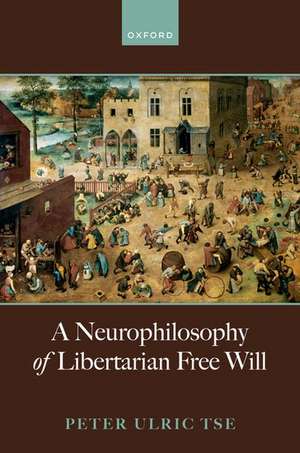A Neurophilosophy of Libertarian Free Will
Autor Peter Ulric Tseen Limba Engleză Hardback – 10 iul 2024
Preț: 359.35 lei
Preț vechi: 436.34 lei
-18% Nou
Puncte Express: 539
Preț estimativ în valută:
68.77€ • 71.36$ • 57.48£
68.77€ • 71.36$ • 57.48£
Carte disponibilă
Livrare economică 13-19 februarie
Livrare express 07-13 februarie pentru 118.46 lei
Preluare comenzi: 021 569.72.76
Specificații
ISBN-13: 9780198876953
ISBN-10: 0198876955
Pagini: 352
Dimensiuni: 165 x 240 x 20 mm
Greutate: 0.68 kg
Editura: OUP OXFORD
Colecția OUP Oxford
Locul publicării:Oxford, United Kingdom
ISBN-10: 0198876955
Pagini: 352
Dimensiuni: 165 x 240 x 20 mm
Greutate: 0.68 kg
Editura: OUP OXFORD
Colecția OUP Oxford
Locul publicării:Oxford, United Kingdom
Recenzii
Well organized and clearly written, this is an engaging discussion that makes a compelling, nuanced case that commonsense, libertarian free will is compatible with our leading philosophical theories about the universe and the human mind.
Notă biografică
Peter Ulric Tse received a BA in Physics and Math from Dartmouth College in 1984, and a PhD in Perceptual Psychology in 1998. After completing a post-doc in Brain Imaging at the Max Planck Institute for Biological Cybernetics, he returned to Dartmouth as a professor, where he has been a teacher and researcher since 2001.
